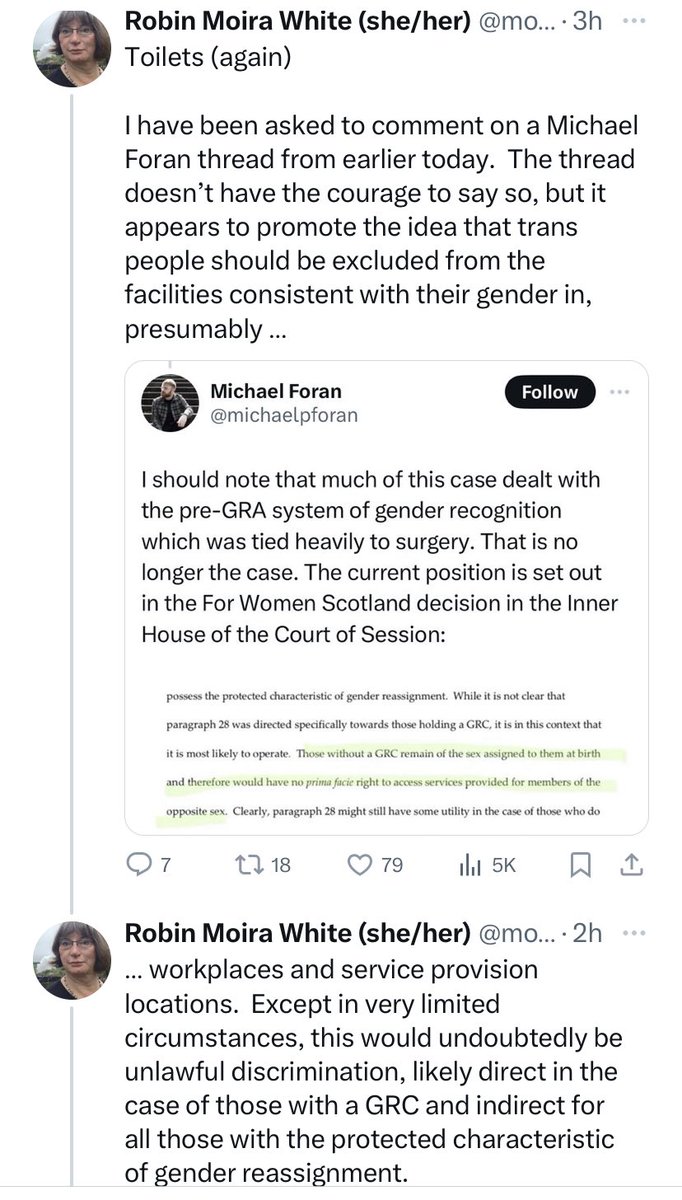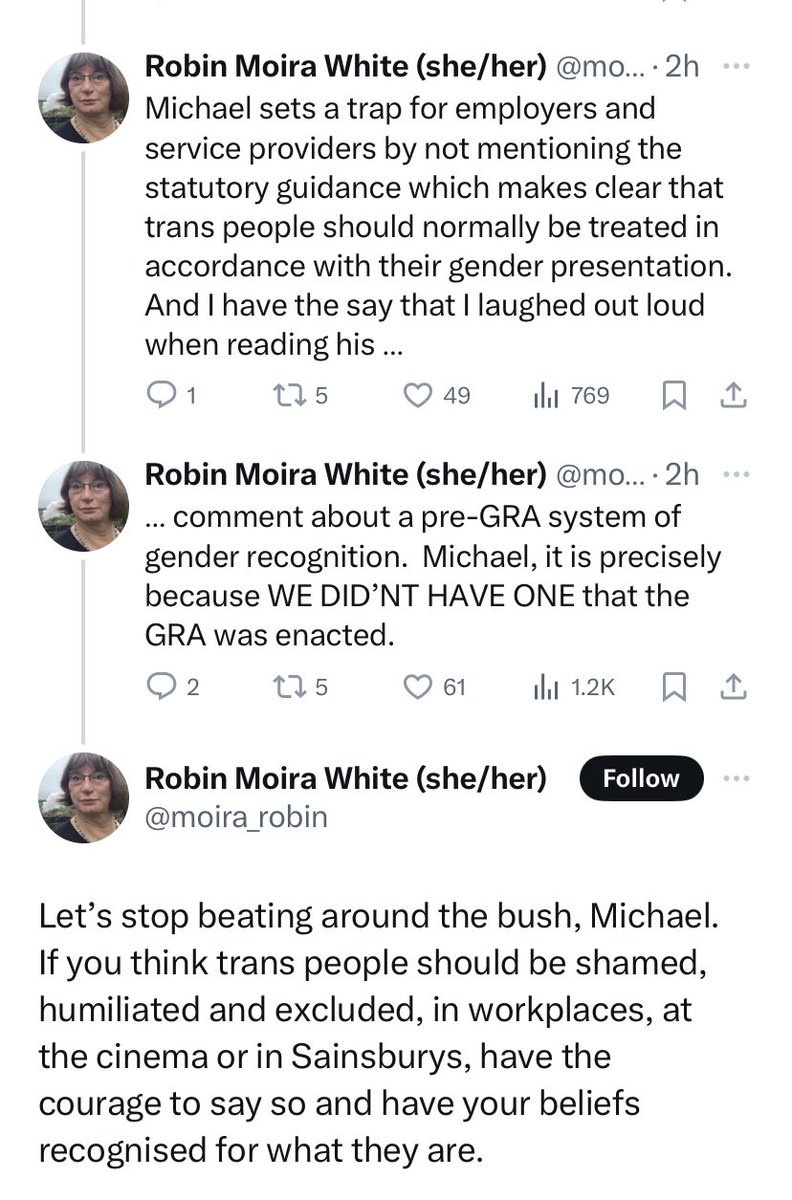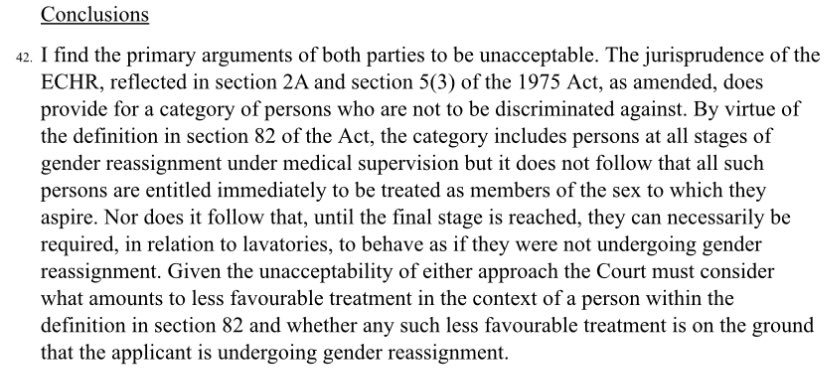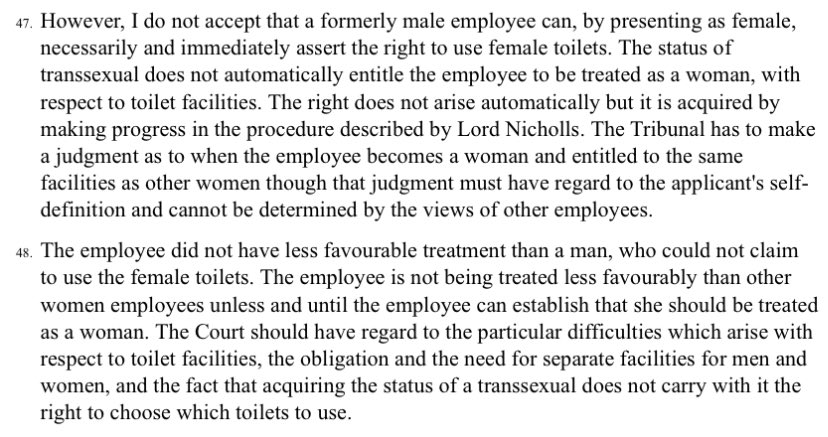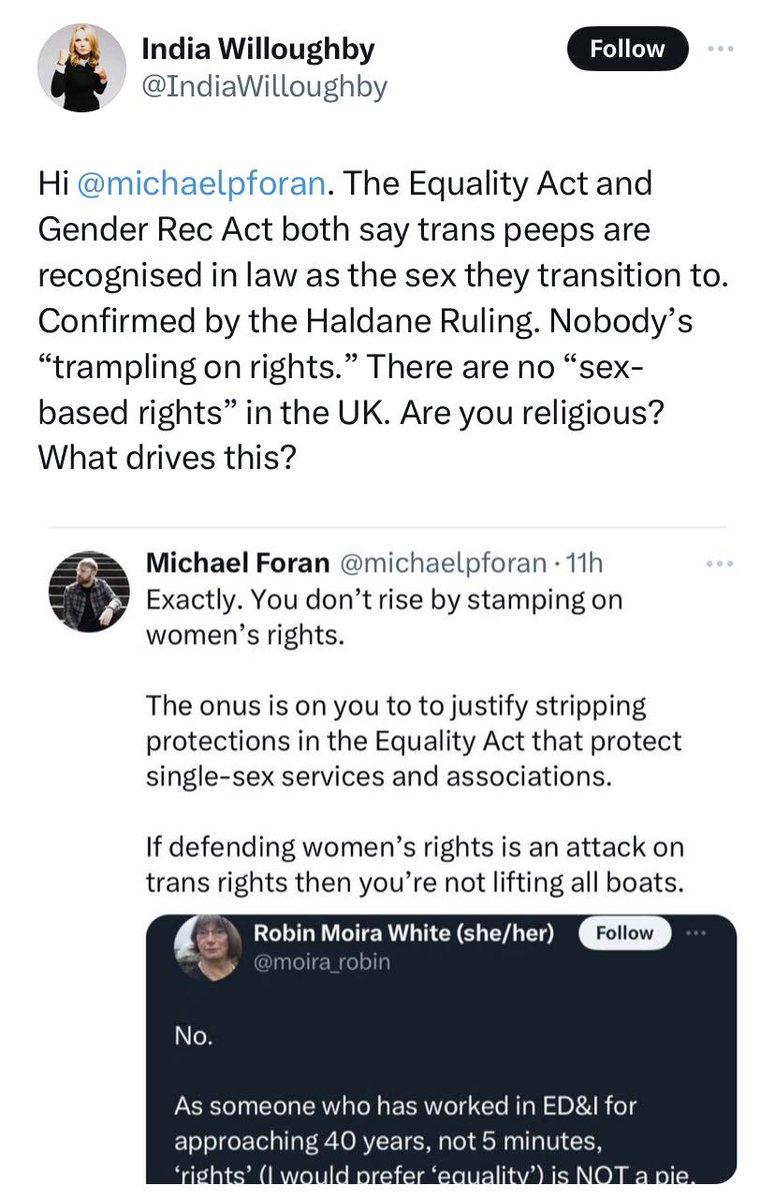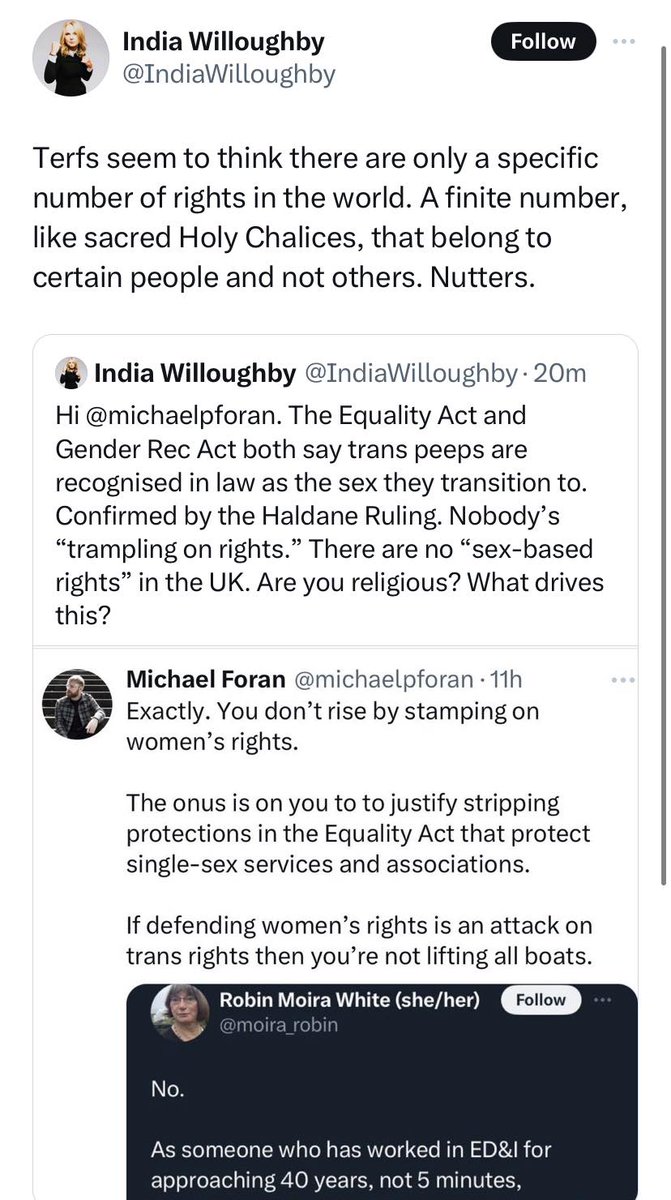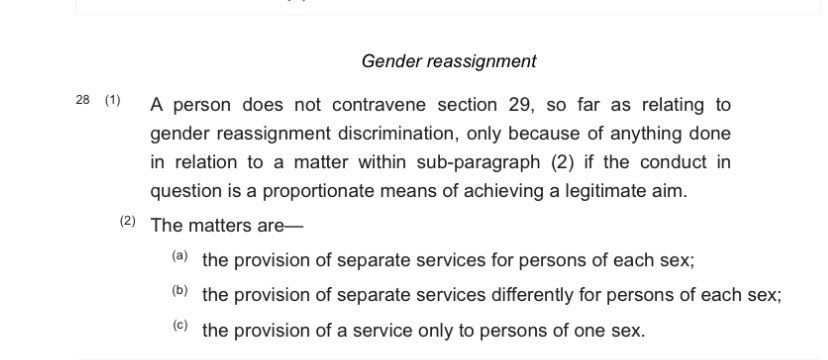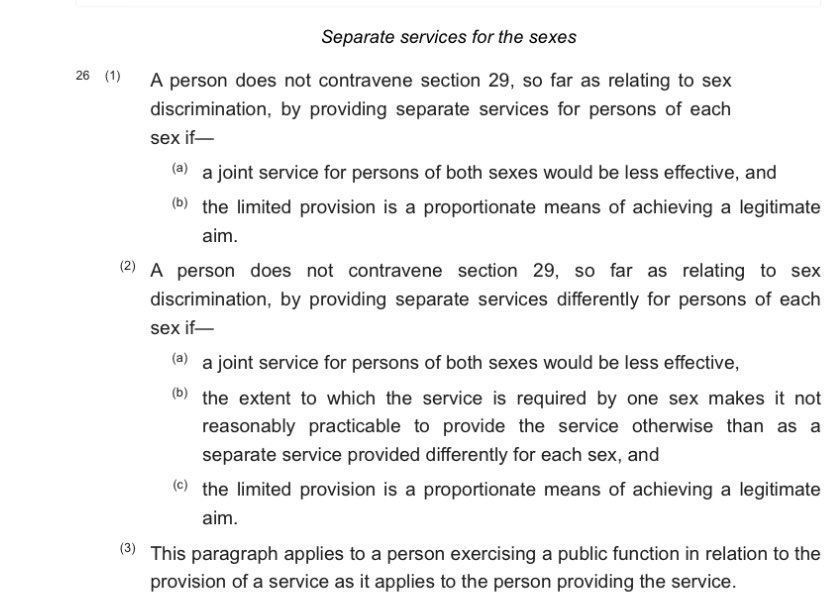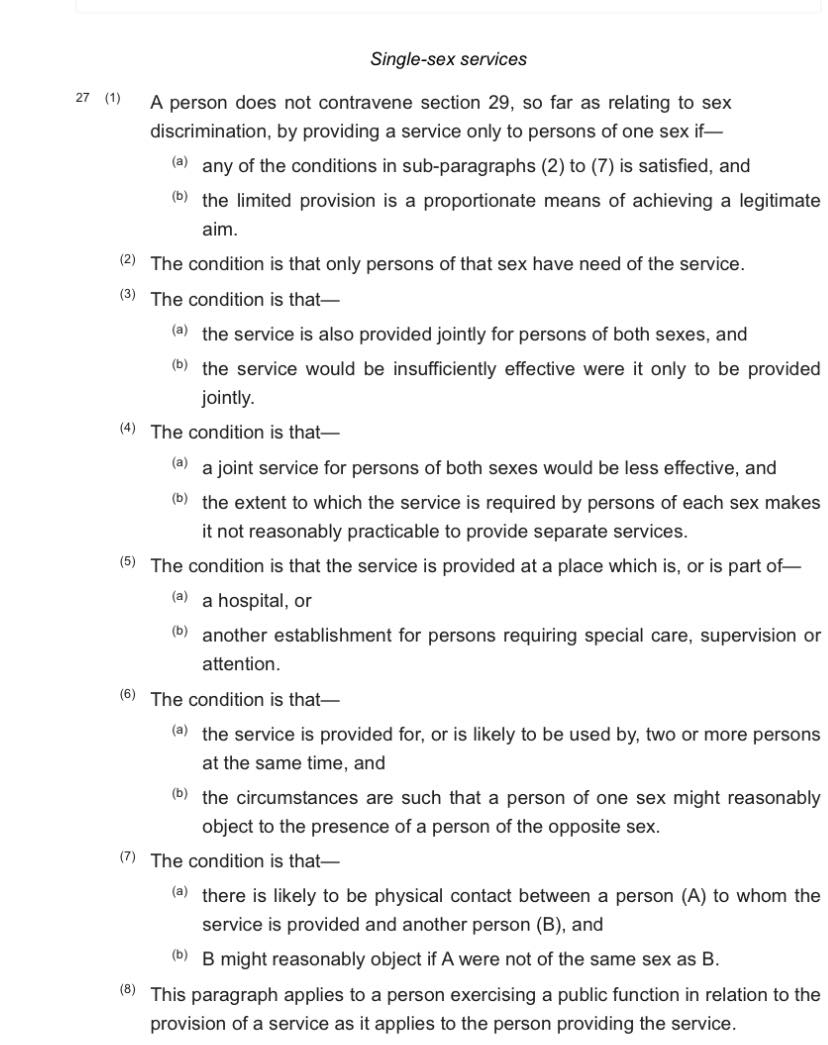Neither I nor @ForWomenScot are “pushing” for sex to have both an ordinary and a technical meaning post GRA. We’re recognising the reality of it as a matter of doctrinal law and arguing that sex in the EA engages the exception to the GRA and so takes on an ordinary meaning.
https://twitter.com/alessandraaster/status/1765384412697354638
Denying the fact that s9(1) provided for an acquired gender which changes sex in law for some purposes will not stop it from being true. The question here that will be decided by the Supreme Court is whether that provision applies to the Equality Act. 

There is no room in this case to argue that acquired gender does not change sex, despite the clear textual language stating that it does. Human rights arguments will allow you to argue that this shouldn’t extend to the EA (which I make) but that’s all this case can address.
This case requires careful work in statutory construction. The statutory framework is complicated. But you cannot introduce a distinction between acquired gender and sex that the GRA does not have. The Act states unequivocally that an acquired gender changes a persons sex.
What we can do as a matter of textual analysis is show that s9(3) limits the scope of 9(1). We can then argue that 9(3) is engaged in the context of the Equality Act and that therefore the deeming provision in 9(1) does not apply.
That argument is one that looks at the caselaw on statutory construction and the statutory text, crucially without ignoring the part of 9(1) that states in black and white that an acquired gender changes sex for some legal purposes.
Neither @ForWomenScot nor I are doing this out of some ideological commitment or out of a failure to take women’s rights seriously or because I’m male. It’s because that is the accurate interpretstiom of the law in our view.
• • •
Missing some Tweet in this thread? You can try to
force a refresh


